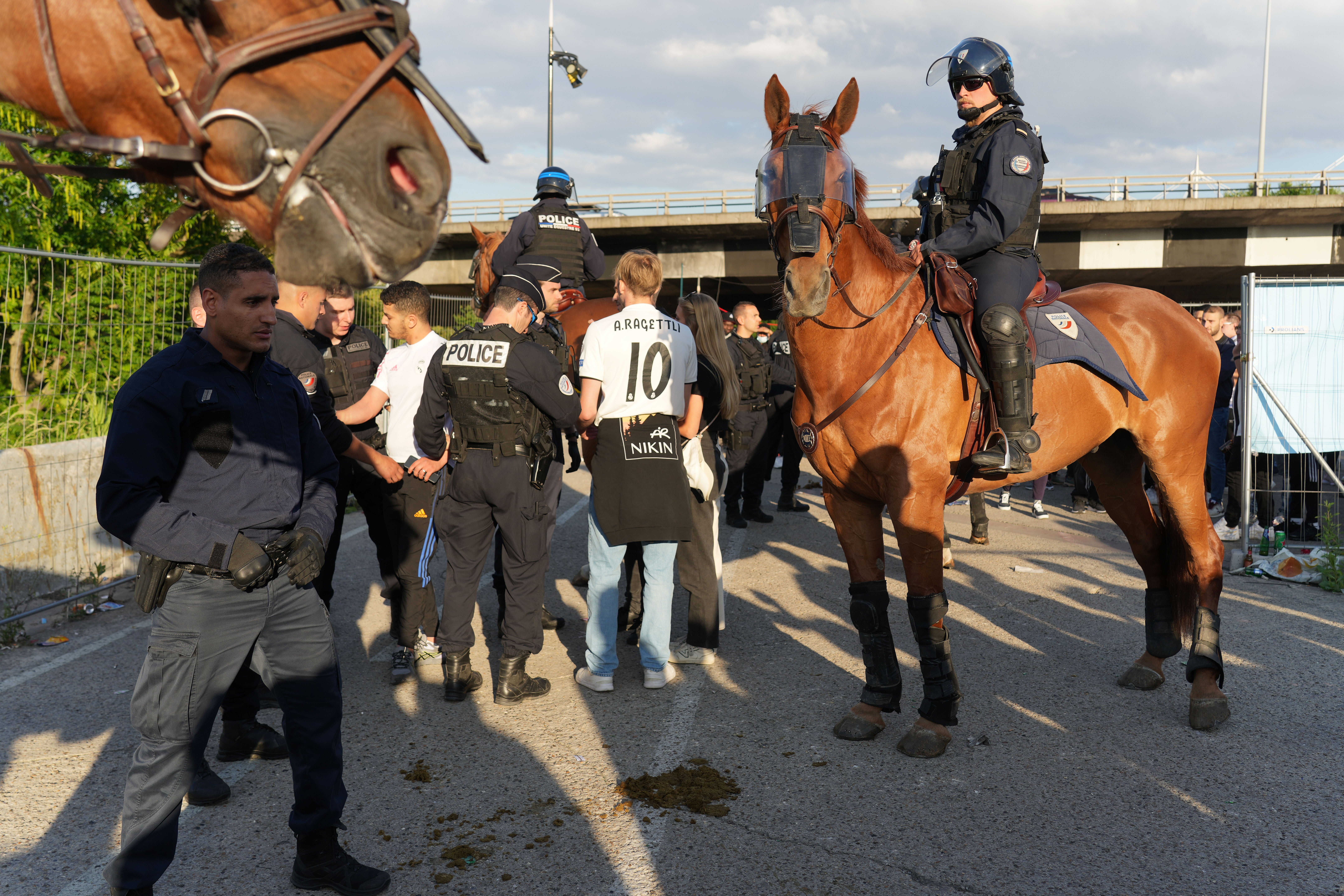Cocaine isn’t the reason for violence at football matches, but alcohol might be
Far from reducing violence, government ministers are trying to divert attention from more obvious issues


Your support helps us to tell the story
From reproductive rights to climate change to Big Tech, The Independent is on the ground when the story is developing. Whether it's investigating the financials of Elon Musk's pro-Trump PAC or producing our latest documentary, 'The A Word', which shines a light on the American women fighting for reproductive rights, we know how important it is to parse out the facts from the messaging.
At such a critical moment in US history, we need reporters on the ground. Your donation allows us to keep sending journalists to speak to both sides of the story.
The Independent is trusted by Americans across the entire political spectrum. And unlike many other quality news outlets, we choose not to lock Americans out of our reporting and analysis with paywalls. We believe quality journalism should be available to everyone, paid for by those who can afford it.
Your support makes all the difference.The policing minister, Kit Malthouse, has announced new measures that he hopes will tackle violence at football matches. Most notably, anyone found “selling or having used cocaine’’ could be banned from matches for five years and have their passport impounded.
Not for the first time, a government minister has identified “middle-class cocaine users” as the root of a problem. Two years ago, home secretary, Priti Patel, and the then head of the Metropolitan Police also held middle-class users of cocaine responsible for knife crime and other forms of violence.
While this sounds true, the evidence suggests otherwise. There is violence associated with dealing drugs, but this tends to be restricted to the supply and distribution of heroin and crack cocaine. Powder cocaine is supplied and distributed through distinct channels and is not associated with the same type of violence.
Government ministers and senior police figures know this, or at least should do, so it’s not helpful to make such claims – it can misdirect scarce policing resources. Last year, Priti Patel promised there would be “high profile” arrests of cocaine users, however none have materialised, demonstrating this was rhetoric rather than reality.
Nevertheless, it has not stopped Kit Malthouse from picking up the baton and again blaming middle-class cocaine users for violence at football matches. Again, he provided no evidence.
As a recent EU report pointed out, cocaine has become more popular as the quality of the drug has improved at the same as becoming more affordable. As a stimulant drug, cocaine can increase energy and a false sense of courage, both of which could contribute to aggression and violence.
But there is no evidence that cocaine turns previously passive individuals into aggressive ones. Drugs can enhance existing feelings and behaviour, so that may be the role they play in football-related violence.
Violence and football have been bedfellows for decades, but this was fuelled not by an illicit powder but a regulated drug – alcohol.
We know that alcohol is responsible for a range of violent acts as it reduces inhibitions and can make some people more agitated than usual. Cocaine can counter the sedative effects of alcohol so is often used in tandem as people can drink more over a longer period.
It is interesting that government ministers choose to focus on use of cocaine rather than alcohol, despite the latter being the more likely drug to facilitate aggression.
To keep up to speed with all the latest opinions and comment, sign up to our free weekly Voices Dispatches newsletter by clicking here
Moving on from the evidence, or lack of it, that cocaine has in football violence, there are some obvious practical problems for Kit Malthouse’s ideas. Firstly, how would drug testing be carried out in football stadiums? With tens of thousands attending premiership matches, the required number of tests and recruiting people to administer them would be costly and cumbersome.
Then there is the matter of the law. While it is against the law to supply a class A drug such as cocaine, it is not illegal to consume it. If the government is serious about prosecuting football fans for using cocaine, this would require a significant change in the law.
Once we move beyond the headline grabbing announcements from ministers about cocaine use, you begin to see how hollow and misleading their assertions are. What’s worse is that by stigmatising people, it can do collateral damage. There are lots of individuals who will need treatment for cocaine and alcohol dependence, having high-profile announcements that shame them is the least effective way of encouraging them to seek help.
Far from reducing violence and problems at football matches, government ministers are actively and deliberately stoking the flames and do not care about those caught in the middle. This is a work of pure fiction not fact, unfortunately the consequences will be real and harmful.
Ian Hamilton is a senior lecturer in addiction and mental health at the University of York
Join our commenting forum
Join thought-provoking conversations, follow other Independent readers and see their replies
Comments